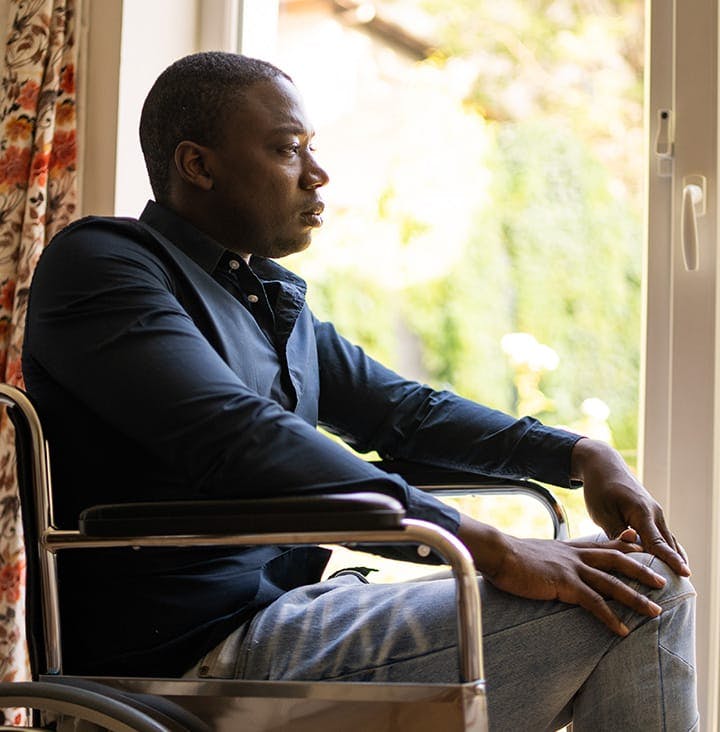If you or a loved one is unfortunate enough to suffer a spinal cord injury in Washington, life inevitably changes.


Spinal Cord Injury Lawyers in Federal Way
Your spinal cord relays information from the brain to the rest of your body, so an injury can lead to partial or total paralysis. When this happens, the changes are not only life-altering for victims but for everyone in their immediate circle. With over 12,000 new spinal cases per year in the U.S., many people around the country are living with debilitating injuries. If the accident that caused your injury was due to the negligent or reckless actions of another party, it is not fair that you pay the price for the rest of your life. To help meet the new challenges and significant expenses that lie ahead, you can seek the compensation you deserve by building a robust legal case. The Federal Way spinal cord injury lawyers at Park Chenaur can help you do that, starting with a free case evaluation.
What types of accidents cause spinal cord injuries?
According to the National Spinal Cord Injury Statistical Center (NSCISC), motor vehicle accidents are the leading cause of spinal cord injuries, accounting for 38 percent of all such injuries. If you are involved in a car accident, your body may experience extreme and unnatural forces that cause traumatic damage to the spine. It can fracture or dislocate vertebrae and crush or compress the spinal cord. However, car accidents are not the only major cause of this type of personal injury. In our capacity as spinal cord injury lawyers in Seattle, we have represented individuals whose injuries have resulted from the following:
Injuries from Falls
Falls account for thirty percent of spinal cord injuries, according to the NSCISC. These falls frequently occur on construction sites but elderly victims may suffer such serious injuries from ordinary falls.
Injuries from Acts of Violence
Around 14 percent of all spinal cord injuries around the U.S. result from acts of violence, such as a gunshot wound or knife wound.
Injuries from Sports Accidents
Sporting and athletic accidents are another common reason for spinal cord injuries, e.g. football, ice hockey, bike riding, and trampoline accidents.
Injuries from Boating Accidents
It’s not only car accidents that cause spinal injuries. Boating accidents can cause passengers to be thrown around or jolted violently, resulting in spinal cord damage.

What types of spinal cord injuries do we help with?
Spinal cord injuries vary greatly in severity depending on the circumstances of the injury. Typical injuries are the result of:
- Compression of the spinal cord
- Bruising of the spinal cord
- Tearing of the spinal cord
- Severing of the spinal cord
Generally speaking, the higher up the spinal cord the injury occurs, the more serious it is. However, with 33 individual vertebrae comprising the spinal column, injuries can occur over a wide area of the body. The four regions for spinal cord injuries are:
The cervical vertebrae (C1-C7)
These vertebrae are located in the neck area and damage here can lead to:
- Speech problems
- Paralysis in the arms, hands, or legs
- Breathing difficulties
- Bladder and bowel control issues
The thoracic vertebrae (T1-T12)
These vertebrae are located in the upper back area. Damage here can lead to severe mobility problems because of leg and trunk issues.
These injuries can lead to the need for a wheelchair and/or walking aids.
The lumbar vertebrae (L1-L5)
These vertebrae are located in the lower back and injuries to the nerves here can negatively affect the function of the hips and legs.
As well as potentially severe mobility issues, bowel control issues are common with such injuries.
Sacral vertebrae/coccyx
These vertebrae are located in the lower pelvic region and can cause mobility issues as well as the loss of bowel and bladder control.
Injuries to the coccyx (tailbone) are extremely painful but do not usually result in permanent complications.
What are the potential costs of a spinal cord injury?
A range of expenses is associated with the care of individuals with spinal cord injuries. In many cases, these are significant and cause extra stress for victims and their families. Even ‘minor’ spinal cord injuries (if any injury of the spine can be described as ‘minor’) can incur total lifetime costs of over one million dollars. The most significant economic costs can be broken down into four areas:
- Medical Care
Medical costs are a major expense, especially in the treatment stages of the injury. Depending on the injury and whether secondary conditions develop, ongoing medical care and management of the condition may be required for life. Typically, ongoing physical, occupational, and psychological therapy are required.
As a general example, the NSCIC estimates that the average yearly expenses for high tetraplegia victims (C1-C4) are over one million dollars for the first year and almost $200,000 for each subsequent year. Paraplegia victims incur average costs of half a million dollars in the first year and over $70,000 for each following year.
- Home Modifications
Depending on the extent of the injury, spinal cord injury victims may require modifications to their home to be able to manage day-to-day activities, such as:
- Installing ramps
- Retrofitting bathrooms
- Other modifications to aid mobility in the home
In extreme cases where modifications are not possible, the victim will need to move to a new residence, incurring extra costs.
- Mobility devices and assistance
Spinal injury victims may require wheelchairs and other mobility devices. They may also need their car retrofitted or replaced to make wheelchair access more practical.
- Household services
A victim may require assistance with daily living, shopping, cooking, cleaning, etc. If he or she has children, childcare services may also be required.
As well as the practical costs of caring for and living with a spinal cord injury, any settlement should also take into account lost earnings from the inability to work and the emotional pain and suffering involved for the victim.


Who is liable for your spinal cord injury?
Establishing liability for the accident that caused your spinal cord injury can be a complex matter. There may be several parties involved and your lawyer’s experience will help you establish the party or parties most likely to settle your compensation claim. Typically, liability is attributed to:
- A motor vehicle driver and their employers
- A manufacturer of a defective product (e.g. fall prevention equipment that malfunctions)
- A negligent property owner, who fails to keep visitors safe from known hazards (e.g. in sports facilities)
Do you need help claiming for a spinal cord injury?
Contact Park Chenaur today so we can get to work on your case immediately. Your initial consultation is free and we can come to you if you can’t make it into our office.











